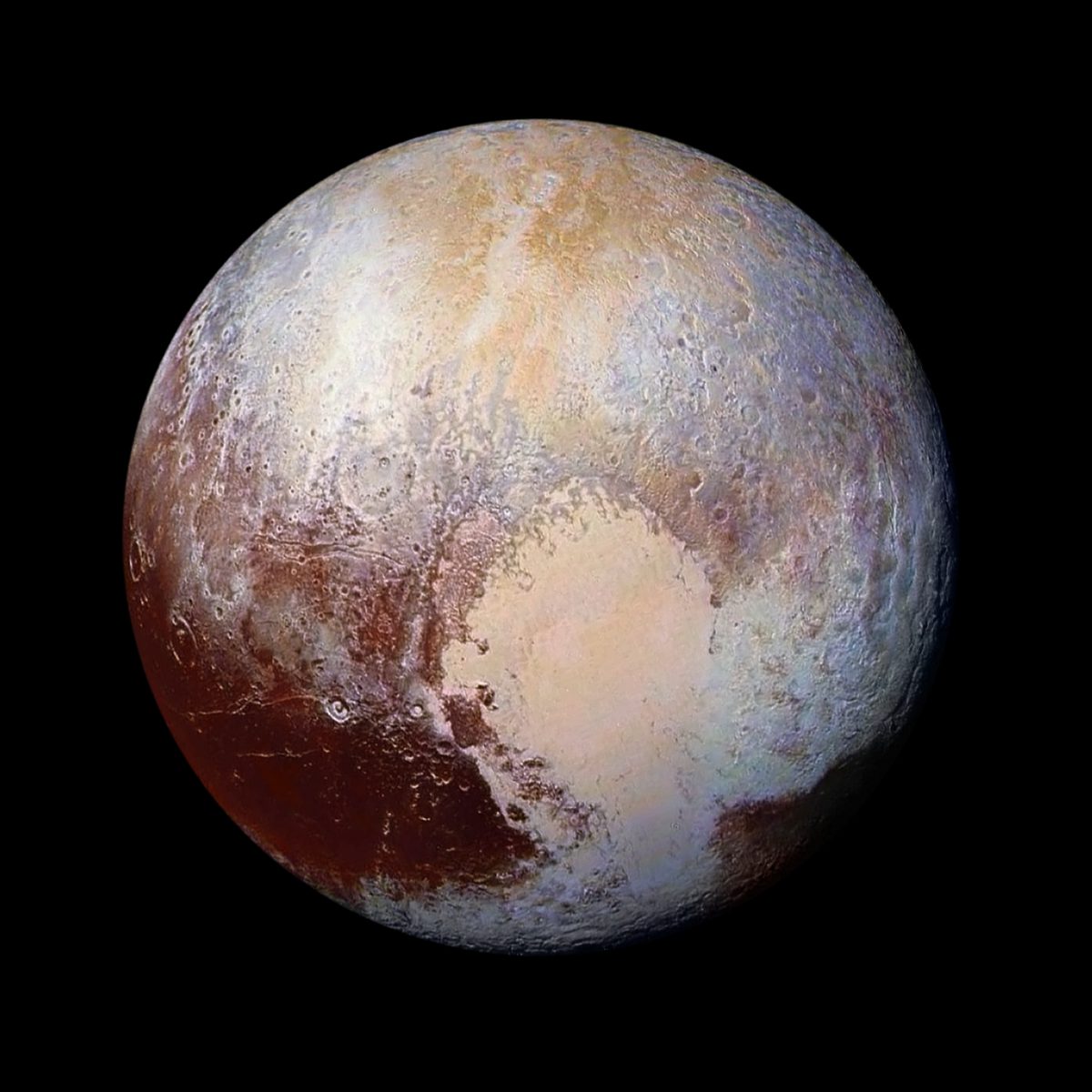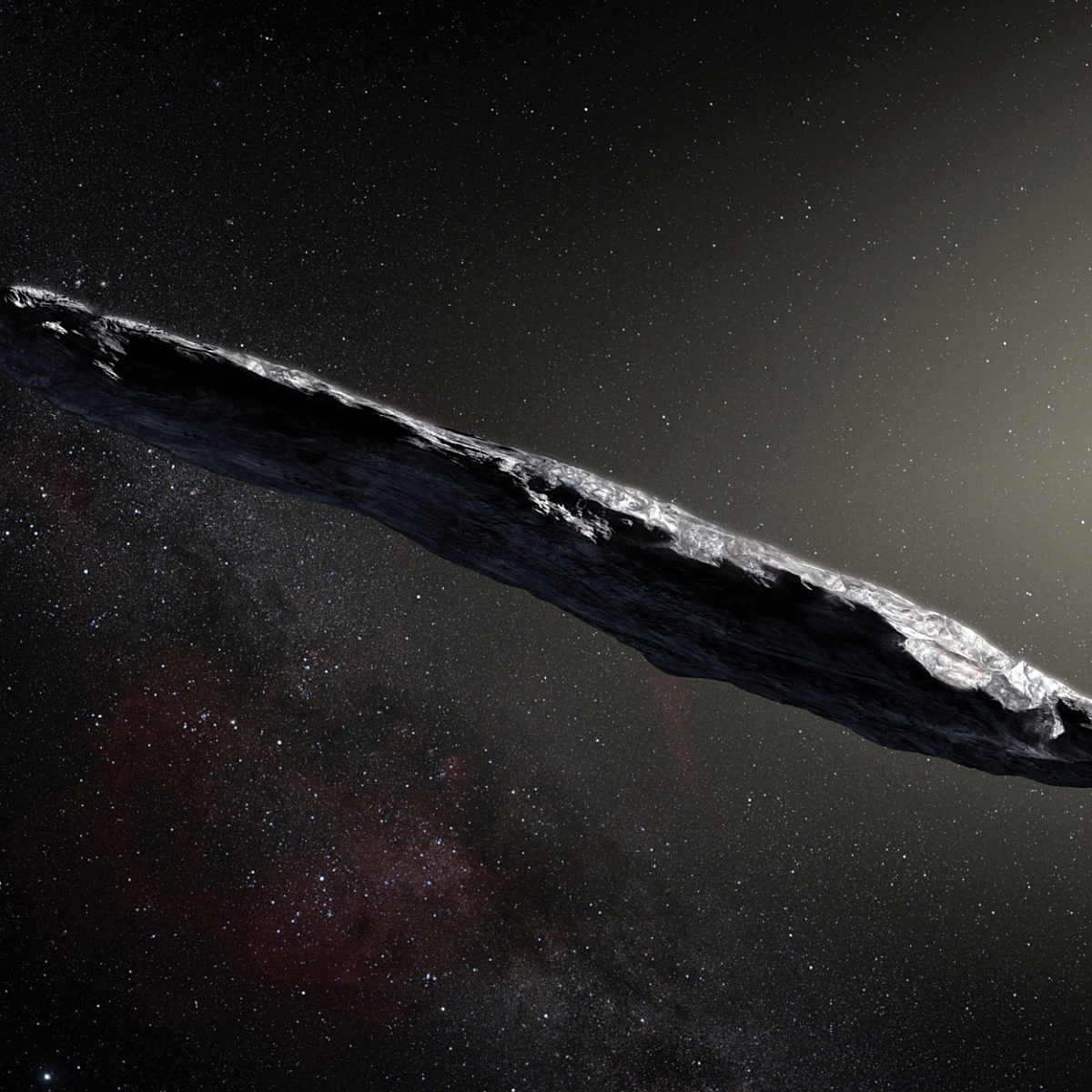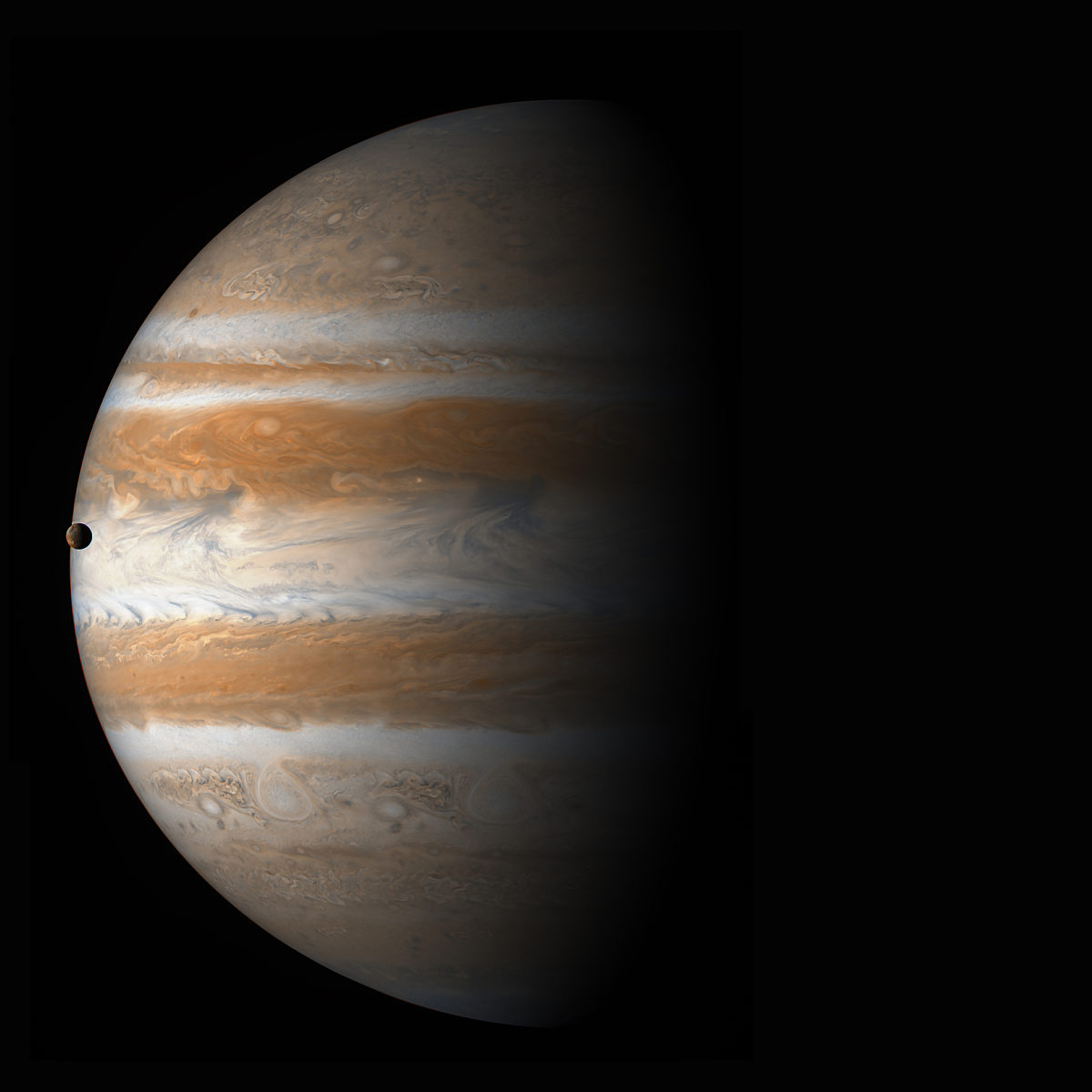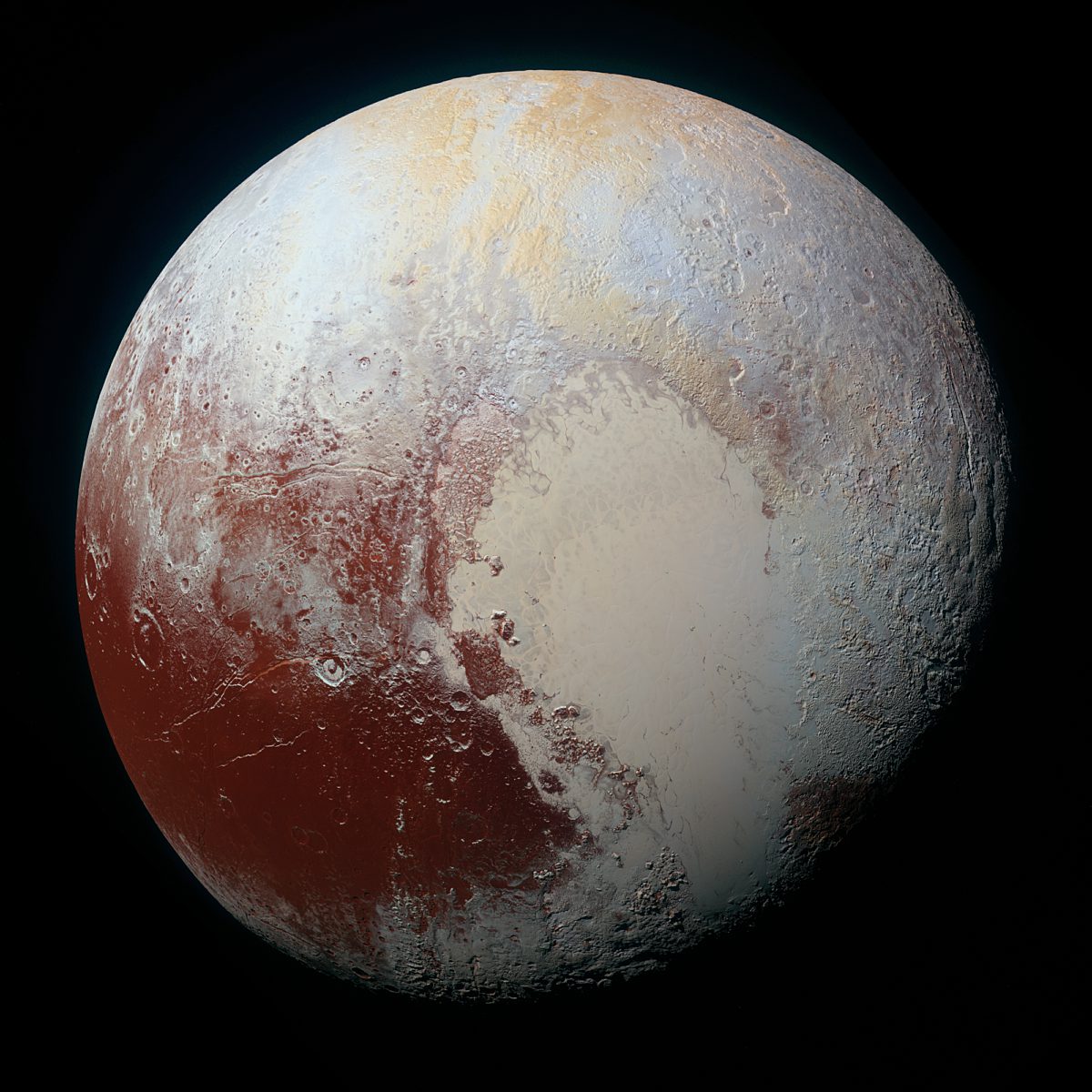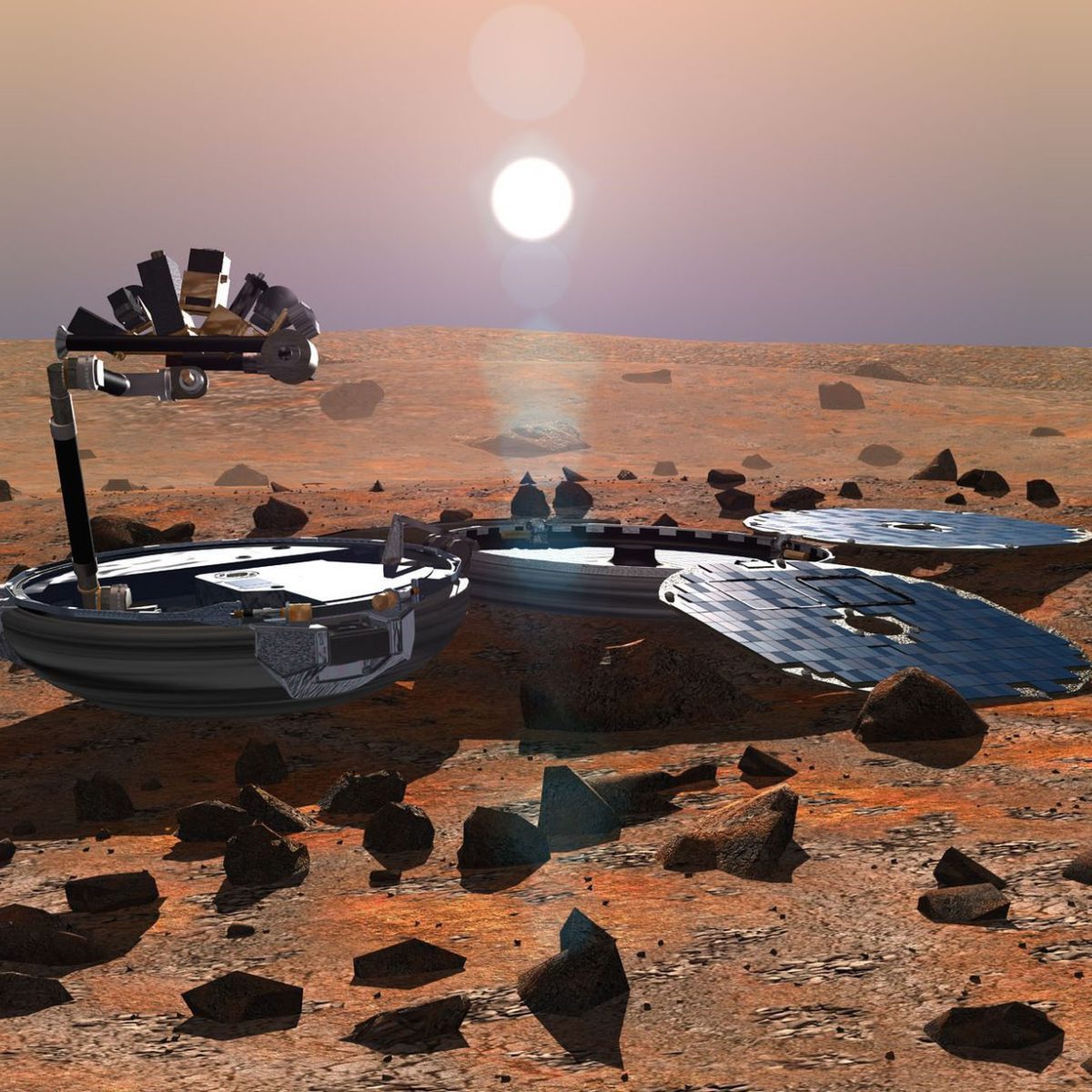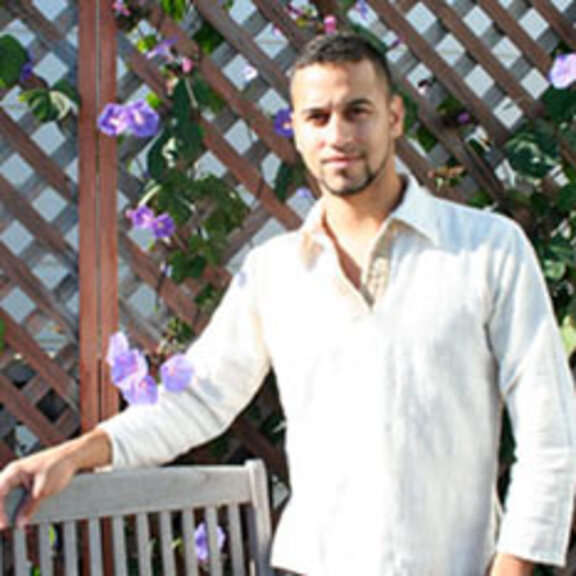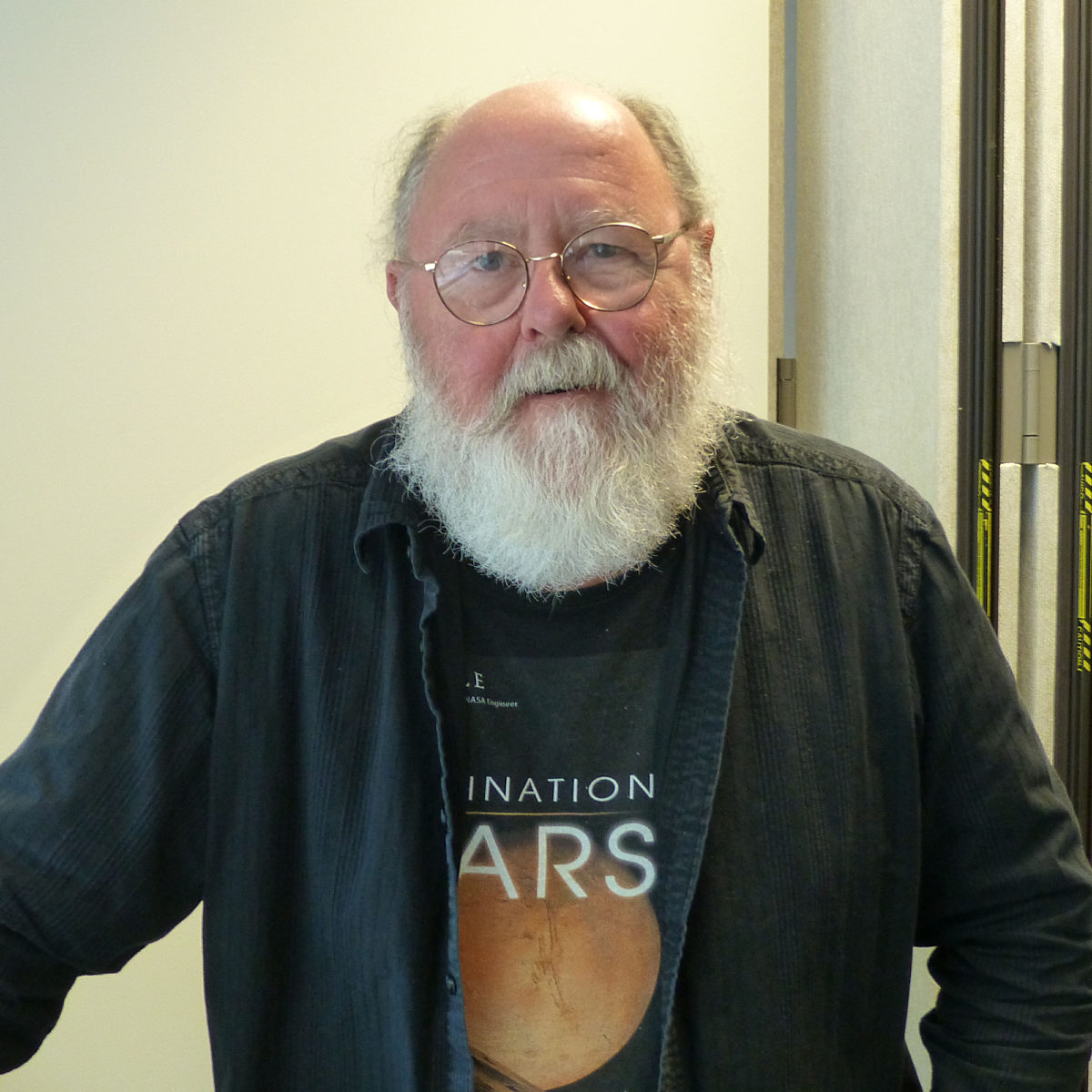Since 2002, Planetary Radio has visited with a scientist, engineer, project manager, advocate, or writer who provides a unique perspective on the quest for knowledge about our Solar System and beyond. The full show archive is available for free.
Search Planetary Radio
The New Horizons mission was a triumph, revealing Pluto as an utterly unique and beautiful world. But the mission first had to survive challenge after challenge, fighting to be developed, meeting a nearly impossible launch deadline, and then narrowly avoiding disaster when it was barely a week from its destination.
The first confirmed interstellar visitor to our solar system is a needle-shaped asteroid given the Hawaiian name ‘Oumuamua. Karen Meech leads the team that is learning as much about it as possible before it leaves our neighborhood, never to return.
Juno will enter Jupiter orbit on July 4th. Mat Kaplan talks with the mission’s Principal Investigator, Scott Bolton at the Jet Propulsion Laboratory. Bill Nye helps prepare us for this exciting encounter and the science that will follow.
The annual Space Symposium in Colorado is a must-attend event for space leaders from around the world. Our coverage begins with United Arab Emirates Space Agency Director General Mohammed Nasser Al Ahbabi, and then moves to ESA Director General Jan Woerner and Chief Scientist Bernard Foing.
Mike Brown and Konstantin Batygin fully expect a new and undemotable ninth planet will be found in the outer reaches of the solar system. The Caltech researchers talk about their findings and much more.
Bruce Betts, Jason Davis, Casey Dreier and Emily Lakdawalla gather with Mat Kaplan for a fascinating and informative Planetary Radio Extra year-in-review roundtable discussion.
6,000 job-seekers came to the new Long Beach, California home of Virgin Galactic’s LauncherOne rocket on a recent morning. We sit down with CEO George Whitesides for a conversation about this new effort and the return of SpaceShipTwo.
The Beagle 2 Mars lander disappeared after it separated from the Mars Express orbiter on Christmas Day, 2003. Eleven years later, it has been found, partially-deployed on the Martian surface. Longtime Beagle 2 mission leader Mark Sims tells the story.
Joe Liske, host of Hubblecast, is also the top scientist on the European Southern Observatory’s European Extremely Large Telescope (E-ELT), now under construction on a Chilean mountaintop. “Dr. J” tells us what this largest ever telescope will help us discover.
It was a terrible, tragic week for commercial space development. Historian and space policy analyst John Logsdon helps up understand the greater meaning of the SpaceShipTwo and Antares disasters on this special edition of Planetary Radio, with additional thoughts from Bill Nye.
Principal Investigator and physicist Bruce Macintosh joins astronomer Franck Marchis to celebrate first light from the most powerful instrument for imaging exoplanets.
24 spacecraft are either busy exploring the solar system or speeding toward an exciting destination. The Planetary Society's Senior Editor takes us on a whirlwind advance tour.
What a long, wonderful trip it has been for Spirit and Opportunity, the Mars Exploration Rovers. Planetary Society reporter A.J.S. Rayl has been writing about their adventure every month for ten years. She looks back on this week’s show.
The annual fall meeting of the American Geophysical Union revealed lots of science, some of it astounding. Emily Lakdawalla was there with Advocacy and Outreach Coordinator Casey Dreier, whose news was not quite as good.
The life of explorer and teacher Dr. Bruce Murray was celebrated last November 10th at Caltech. This week we present a few excerpts from the tributes paid to the former JPL Director and co-founder of the Planetary Society.
Casey Dreier tells the winding tale of Plutonium 238, the radioactive isotope that is vital for exploration of the solar system. The US came dangerously close to exhausting its supply. Even with production restarted, there are major challenges facing explorers.
Planetary Radio returned to the Crawford Family Forum for live coverage of the LADEE launch on September 6th.
Leonard David has been writing about space exploration for more than five decades. Now he has turned his attention to China’s ambitious plans.
Amanda Hendrix looks for and studies water in our solar system, where it has been found in surprising locales. Earth's moon, for instance. She talks about Luna’s ice and the weathering of its ancient surface.
The internationally renown string quartet talk about creating and performing Terry Riley's Sun Rings, that incorporates Don Gurnett's space sounds.


 Explore Worlds
Explore Worlds Find Life
Find Life Defend Earth
Defend Earth


